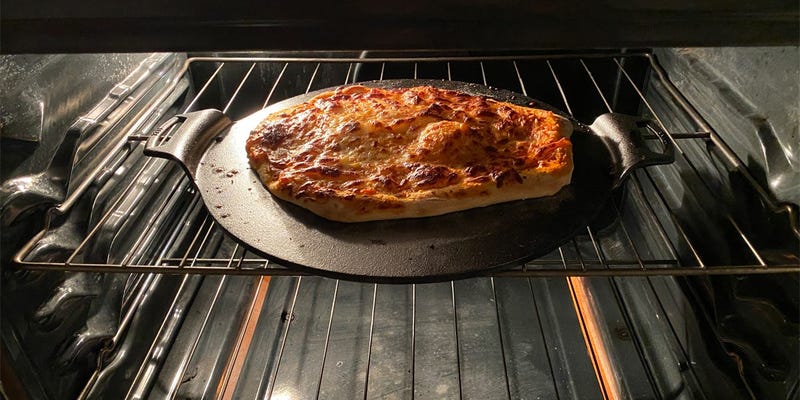For kitchen professionals, creating the perfect pizza is an art form that requires precision, patience, and the right tools. A baking stone serves as a cornerstone for achieving a crispy, well-cooked pizza crust, but the foundationyour pizza doughplays an equally crucial role. As kitchen professionals, understanding and applying the right pizza dough tips for baking stones can transform your pizza-making process, bringing your culinary creations to a new level.
:max_bytes(150000):strip_icc()/pizza-stone-testing-winners-lodge-pre-seasoned-cast-iron-baking-pan-wdickey-3-02-a8dc06f53f5d4be89d55a499294de19b.jpg)
Understanding the Role of a Baking Stone
A baking stone mimics the conditions of a traditional pizza oven, offering even heat distribution and moisture wicking capabilities. For more insights, visit this article on the ultimate guide to baking stones. This tool is essential for enhancing the crust texture, especially when working with homemade dough. Professionals often debate between using a pizza stone vs. baking stone, but understanding each component's function can pivot your practice toward the desired results.
Prime Your Baking Stone
Begin by placing your baking stone in the oven at a cold start to avoid thermal shock. Gradually heat it, allowing it to absorb and retain optimum heat levels. A consistent high temperature, often between 475F and 500F, ensures a hearty base for baking.
Baking Stone Seasoning
Much like you would with cast iron, understanding how to prep your stone can be beneficial. Seasoning the stone helps to create a seasoned surface that reduces sticking and facilitates easy cleanup. While not entirely mandatory, some culinary experts opt for a light wash before initial use and allow the stone to dry thoroughly.
The Science Behind Perfect Pizza Dough
Achieving perfect pizza dough aims to blend well with the stone's capabilities. It starts with using the right type of flour. Flour high in gluten is preferred for its elasticity and ability to endure the high temperatures of the baking stone.
Fermentation and Proofing
Allow your dough appropriate fermentation time, preferably over 24 hours. Extended proofing allows the yeast to develop flavors, impacting the dough's taste and texture positively. For more dough-specific tips, consider understanding how different proving times affect your dough and end result.
Strategizing Dough Preparation
Before baking, roll or stretch the dough to the desired thickness. Consider your usage of baking stone vs. pizza pan because it can define your strategy. Excessive flour on the pizza peel can affect taste; hence using semolina can ease dough transfer without effecting the flavor. If curious how frozen dough fares, our article on baking frozen pizza on stone addresses preparation nuances.
Temperature and Timing: Key Variables
Preserving your baking stones heat once it reaches sufficient temperature is pivotal. This can be achieved by balancing the time you let the dough sit on the stone before heating, ensuring even distribution.
Timing Your Pizza Bake
Monitor the time your pizza bakes, around 8-12 minutes is common. Change up the racks for unique crust textures. Keep an eye on cheese melt and crust browning, and adjust according to different dough thicknesses.

FAQ Section
What consistency should my dough be for the baking stone?
Your dough should be slightly sticky but easy to shape. High-gluten flour helps achieve appropriate consistency without sticking.
Should I wash my baking stone?
Avoid immersing the stone in water to retain its integrity. Simply scrape off residues post-bake and use a dry brush if needed.
Can I pre-make dough and store it for later use?
Yes, dough can be stored in the fridge or frozen. This develops flavor over time and provides a quick go-to when needed.
This article contains affiliate links. We may earn a commission at no extra cost to you.





Leave a comment
This site is protected by hCaptcha and the hCaptcha Privacy Policy and Terms of Service apply.